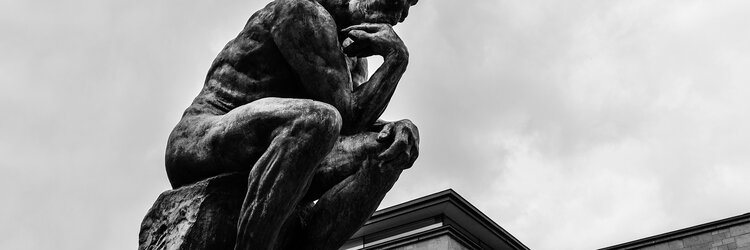
2 Answers
Leave a Reply
You must Register - Login to add an answer.
3 Answers
Dislike a higher-level user.Philosophy helps you find yourself,no matter how it sounds, it is worth reading and not just for general development.Start with books that change your perception of the world,such as Nietzsche or Spinoza,you can read Kant, Plato and Schopenhauer
Why would you do that at all? You don't need to start studying philosophy. It's probably not yours. Philosophy is completely useless for practical life, some abstract reasoning of some dead grandfathers. It's better to sign up for a swim or learn to speak Spanish. Philosophy for those who have gone, but you, since you ask such a question, are not one of them, you are looking for consistency. The most consistent thing you can do is go to work in a factory. Philosophy is a disease of language.
Start with the history of philosophy.
In philosophy, as in any field of knowledge, there are many sections, theories, teachings, directions, and it is impossible to cover all of them. So first you need to decide what exactly interests you: ontology, logic, epistemology, political philosophy, or something else. And to decide on your preferences, you should get an idea of what problems exist in philosophy and what approaches different thinkers have applied to them. Read, for example, “Introduction to Philosophy” edited by Frolov. After that, you can take up Passmore's One Hundred Years of Philosophy. So you will get a more or less general picture.
Yes, it is better not to start with large and important works, for example, with the Critique of Pure Reason – to read such things for a beginner, it's like starting to study mathematics with the Riemann hypothesis. This is an easy way to discourage interest in philosophy. But in parallel with the textbooks, or after reading them, you can read relatively simple small classical texts that are important and are included in the “mandatory program” (of course, there is actually no such program, but there is a certain minimum of what you should read). Turn to Plato – for a start, his well-understood and interesting texts are perfect: “Feast” and “Apology of Socrates”.
Leave a Reply
You must Register - Login to add an answer.

I would recommend starting with two works by Bertrand Russell – “Problems of Philosophy” and “History of Western Philosophy”. The first one introduces the reader to philosophy as a discipline, its tasks, problems, main ideas and their representatives – in general, an introduction to the subject. The second book, in comparison with many other works on the history of philosophy, is of particular interest because it Russell not only describes the history, but also shows how the society in which they lived thinkers who shaped their philosophy and how, in turn, thinkers shaped the worldview of the society; talks about the relevance of the ideas of philosophers, allows himself to critically reflect upon them. In my opinion, Russell is sometimes biased and overly subjective, but mostly his criticism is not unfounded, and therefore deserves attention. Both books are written in a simple and understandable language, and they are easy and interesting to read.
Classic: they always start with the terminology of what philosophy is, its place and role in culture, and immediately move on to history. If you want to learn philosophy for yourself, and not pass an exam / subject (although it can also be useful here), I can recommend an interesting service “Philosophy in 15 minutes” – a site where teachers talk about philosophy without Soviet boredom in the form of a dialogue between two teachers. There is even a course for graduate students. philosofaq.ru